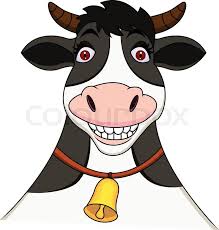It’s heart-warming news for the fellows who want to ban the beef trade. Now BSF jawans have to chase cows as well! The Bangladesh beef industry is tottering, thanks to the Indian government’s new found obsessive love for cattle.
Some 30,000 Indian soldiers guarding the border with Bangladesh have an extra job under Prime Minister Narendra Modi’s government this year — stop cattle from crossing illegally into the Muslim-majority neighbour.
Roughly every other night, troops armed with bamboo sticks and ropes wade through jute and paddy fields and swim across ponds to chase ageing bovines, and smugglers, headed for markets in Bangladesh, says a report put out by Reuters.
This exercise is one sign yet of how policy decisions in India are increasingly influenced by religious right wingers who call themselves ‘Hindu nationalists’. These policies are having an economic impact on neighbouring countries as well!
Every year, 2 million head of cattle are ‘smuggled’ into Bangladesh. The $600 million-a-year trade has flourished over the past 40 years and is considered legal by Dhaka. The Modi government, in tandem with Rashtriya Swayamsevak Sangh (RSS), wants to put an end to it.
Union Home Minister Rajnath Singh recently called on the Border Security Force (BSF) to halt cattle smuggling completely so that the “people of Bangladesh give up eating beef”, media reported.
Weird quotes are routinely carried by the press in India such as one equating women with cows. “Killing or smuggling a cow is equivalent to raping a Hindu girl or destroying a Hindu temple,” said Jishnu Basu, an RSS spokesman in West Bengal.
‘Beef costlier, exports down’
Without a doubt, Bangladesh is being hit, even though, legally, the beef trade isn’t banned by the northeastern states which border Bangladesh. So far this year, BSF soldiers have seized 90,000 cattle and caught 400 Indian and Bangladeshi smugglers.
Bangladeshi traders who operate auctions to facilitate the sale of cattle to slaughter houses, beef processing units, tanneries and bone crushing factories estimate the industry contributed 3 percent to the country’s $190 billion economy.
H.T. Imam, a political adviser to Bangladesh Prime Minister Sheikh Hasina, recently admitted that the beef trade and leather industry were suffering.
Syed Hasan Habib of Bengal Meat, Bangladesh’s top beef exporter, said it had to cut international orders by 75 percent. The company exports 125 tonnes of beef a year to Gulf countries.
He said the price of cows had gone up by 40 per cent over the past six months because of India’s move, and they had been forced to close two processing units. Habib plans to import cows from Nepal, Bhutan and Myanmar to meet domestic demand, but he said Indian cows had better quality meat and raw hide.
Bangladesh Tanners Association president Shaheen Ahmed said 30 of 190 tanneries had suspended work due to lack of hides, and about 4,000 workers were jobless.
A senior official in India’s home ministry said Bangladesh should find new sources of beef because India would stick to its stance.
‘Violent cow protection’
India is home to 300 million cattle and is the world’s largest beef exporter and fifth-biggest consumer. But since Modi’s Bharatiya Janata Party (BJP), which is closely linked to the RSS, came to power last year, the rhetoric on cow protection and the beef ban has increased.
Critics say tougher anti-beef laws discriminate against Muslims, Christians and lower-caste Hindus who rely on the cheap meat for protein. Butchers and cattle traders, many of them Muslim, say the push threatens thousands of jobs.
So called ‘cow protectors’ are emboldened to perpetrate violence with impunity. The state simply turns a blind eye.
“I was chained to a tree and beaten by members of the cow protection force. They forced me to recite a Hindu prayer,” said Mohammed Tarafdar, who was caught smuggling two calves near the Bangladesh border in April.
“My religion permits me to eat and sell beef, so why should Hindus have a problem?” said Tarafdar, sitting in a crammed prison cell in Basirhat district. Some BSF soldiers said they could not understand why they were chasing cows. Some animals are caught and auctioned by the BSF, only to be bought and smuggled again.
Two soldiers were killed by a gang of Bangladeshi smugglers, while three dozen have been injured by the animals.
“It is a wild chase, but not of a kind a soldier appreciates,” said Vivek Tyagi, a BSF commander at the Ghojadanga check post.


